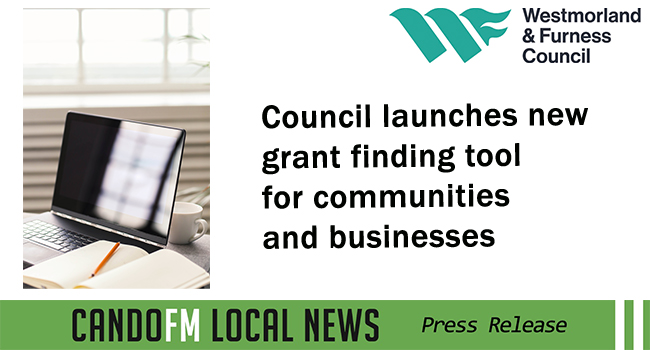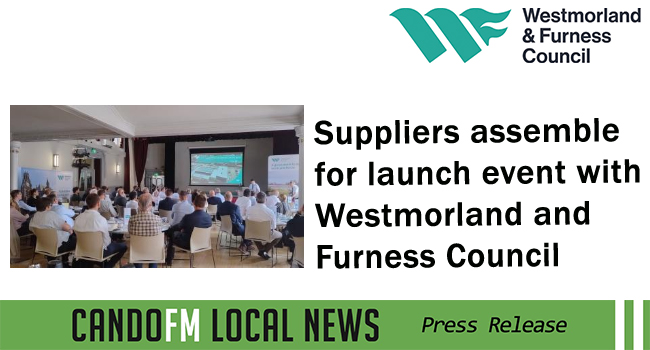
Cumbria Constabulary and the Police and Crime Commissioner, Peter McCall, have recently launched Pathways, an innovative programme that aims to both listen to the wishes of victims and prevent offenders returning to crime – after they have faced consequences for their actions.
The Pathways programme also intends to make communities safer and cut offending in the process.
Pathways, which is funded by Peter McCall, changes how the criminal justice system in Cumbria can deal with some lower-level offending, including being drunk and disorderly, theft and vandalism.
The programme takes into account the wishes of victims and the best way of getting the offender to stay crime-free in the future.
The Pathways team work with offenders to address the root cause of why the offending happened.
The criminal justice system already uses methods called out-of-court disposals, such as cautions and community resolutions, for some offences.
There are two specific new disposals which come under the Pathways programme – deferred cautions and deferred charges.
The Pathways programme offers eligible offenders the chance to have charges and cautions deferred on some lower-level offences that are deemed appropriate.
But in return they must abide by a number of strict conditions, such as taking part in a rehabilitation programme, providing possible compensation to victims or being prevented from going to certain places.
On completion of the Pathways Programme and only if they have completed the strict conditions set, they will not receive a police caution or charge to court, removing the need for victims to potentially attend court and give evidence – but also putting the offender on a path that prevents re-offending.
Chief Inspector Jon Sherlock, of Cumbria Constabulary, said: “Pathways is not a soft option and the offenders involved must take responsibility for their actions.
“In some ways facing your victim and taking responsibilities for your actions is much tougher than simply paying a fine.
“It is uniquely tailored to the individual circumstances of the case and those involved, and it will often be harder for the offender to complete this scheme than to take a simple caution for the offence or pay a fixed penalty notice.
“If they successfully complete the conditions then no further action will be taken against them in relation to this offence.
“But if they re-offend during the rehabilitation period or fail to comply with the conditions, then the scheme reserves the right to proceed to court.”
Cumbria’s Police and Crime Commissioner, Peter McCall,comments: “The Pathways scheme can help offenders make better life choices and find opportunities they might not previously have had, also helping them steer clear of crime.
“It aims to achieve better outcomes for victims – their voice in this is central – and to reduce repeat offending. That means fewer victims and safer, more crime-free neighbourhoods.
“Not all victims want to go through the experience of having to testify in court, they just want offenders to face consequences and, where appropriate, be compensated for what happened.
“It also helps those people who may have made a stupid mistake and committed a first offence face consequences but at the same time let them get on with their lives afterwards.
“The process follows a multi-agency approach, as the people referred might have multiple problems and complex needs.
“This can take a wider look at the causes behind the offending, helping stop this in the future.”
The Pathways scheme, which started taking referrals in June, has received more than 100 referrals, with 18 offenders successfully completing the programme.
David Bates, Operations Manager at Remedi, comments: ”Remedi have a vast amount of experience working with both victims and offenders to help address the harm caused by offending behaviour.
“By working closely with the offenders and where appropriate, the victims, Pathways will guide offenders to address the root causes of their behaviour and build empathy for their victims and the communities in which they all live.
“The Pathways scheme aims to reduce the risks associated with future reoffending, while giving the victims an opportunity to have some input into the work undertaken with the offenders.”
Case Study One
Pathways received a referral of an offender, H, who had committed three acts of shoplifting, on three separate occasions.
H accepted Pathways because they needed support and felt like their actions were a cry for help.
It was agreed to primarily focus on bereavement/mental health and methadone use issues at first.
H was already getting counselling for their mental health and support with drug use, however, had no support and nothing in place for the grief they were feeling.
With help from the Pathways support worker, H eventually found the courage to call Cruse – a charity that supports bereaved families and people in Cumbria – and started six-week bereavement counselling sessions.
H accepted 100 per cent responsibility for what they did, feeling incredibly guilty and embarrassed about it, believing it was all linked to the grief they were feeling.
In feedback, H comments: “The Pathways Support Worker has been absolutely great, talked sense, was supportive and offered me help in every way possible. I would encourage anybody to take the Pathways programme, as it really does help people.”
Case Study Two
Pathways received a referral of an offender, T, who had been arrested for possession of cannabis.
They admitted to using it regularly and felt it helped their mental health.
T was already receiving support for mental health and their finances, so the Pathways support worker focused on further support from Unity.
Halfway through the Pathways scheme, T experienced a family emergency and despite this, still answered their calls, coped well with the situation and didn’t turn to drink or drugs.
Pathways encouraged T to look more into the offence, how it affected people and made T think twice about their bad habits.
T said they would recommend Pathways to others, as it is a better option, helpful with finding support and getting personal things sorted out.







